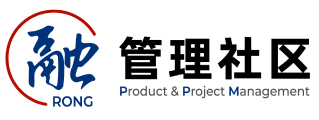为什么我的团队不承担责任
 780 2023-07-15
780 2023-07-15
我们非常重视原创文章,为尊重知识产权并避免潜在的版权问题,我们在此提供文章的摘要供您初步了解。如果您想要查阅更为详尽的内容,访问作者的公众号页面获取完整文章。
2018 Global Agile Article Selection Summary
Author: Heidi Araya, Edited by: Michael de la Maza & Cherie Silas, Published on: July 18, 2018
Heidi Araya's article delves into the common confusion between 'accountability' and 'responsibility' within agile teams and offers insights on fostering a sense of ownership among team members. She clarifies that accountability refers to the consensus and expectations set, followed, and managed among team members, while responsibility is an intrinsic awareness of one's duties.
In agile, particularly Scrum teams, it is expected that the teams have everything they need to deliver potentially shippable increments at the end of each Sprint. The concept of 'Done' is critical, and it requires a shared understanding within the team to ensure transparency and quality. Without control or empowerment over their work, teams are less likely to feel responsible and be accountable for outcomes.
Araya highlights the distinction between external accountability and internal sense of responsibility. She also draws attention to the importance of commitment and the values of courage, focus, openness, and respect as outlined in the Scrum Guide. These values bring the pillars of Scrum—transparency, inspection, and adaptation—to life and establish trust among team members.
She references Douglas McGregor's Theory X and Theory Y, explaining how today's work requires interdependence, contrasting with the outdated notion that individuals work in isolation. This interdependence emphasizes the need for teams to commit to the quality and value for the customer.
To help teams feel responsible, Araya suggests various actions: understanding the Scrum Guide, discussing the meaning of 'Done', setting clear expectations, establishing goals, practicing pair or mob programming, providing necessary tools and removing obstacles, holding valuable retrospectives, allowing cross-training, and dedicating time for improvement.
Araya concludes by emphasizing the opportunities for individuals to work happily with a sense of responsibility. She also encourages managers to let teams find their way of working, stressing that imposing specific ways of working is not truly agile. The article finishes by sharing resources for further guidance on non-imposing agile participation methods and provides information about Heidi Araya's professional background in agile transformation and organization design.
想要了解更多内容?


白皮书上线








